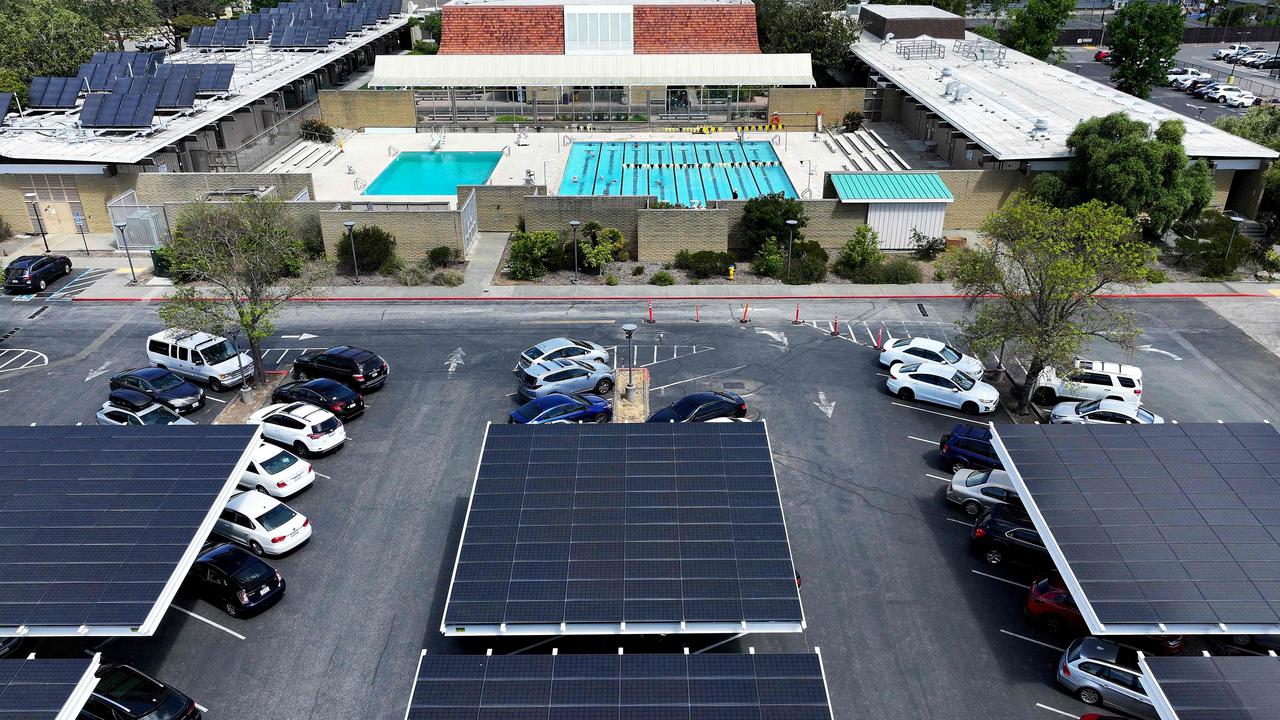Australian companies behind on climate change action: Kearney
Australian companies face ‘significant challenges’ meeting climate change targets, with many behind their Asia-Pacific counterparts, according to a study by consulting firm Kearney.

Australian companies are facing “significant challenges” meeting climate change targets, with many behind their Asia-Pacific counterparts in their commitment to emission reductions, according to a study by consulting firm Kearney.
Only 20 per cent of the business leaders who were surveyed had plans that lined up with the net zero goals of the Paris Agreement, which the survey says reveals a “concerning gap in Australia’s progress towards meeting global 2050 net zero goals”.
Most executives surveyed (88 per cent) regarded decarbonisation as a cost and a risk rather than an opportunity. While 82 per cent of companies in the Asia-Pacific surveyed had set target dates to achieve net zero, only 72 per cent of Australian companies had done so.
Only 28 per cent of Australian companies surveyed had target dates for reducing all three emissions (Scope 1, 2 and 3), compared to 41 per cent for Asia-Pacific companies as a whole.
“There is an increasing concern that while corporates in Australia are setting targets to reduce emissions, their ability to execute against them is in question,” Kearney partner and co-leader for sustainability in the Asia-Pacific, Kate Hart, told The Australian.
“Australian companies were almost an outlier in the Asia-Pacific region in some of the key questions which were asked in the survey. Despite the relative maturity of Australia versus some of the other Asia-Pacific countries which were surveyed, there is a concerning and growing execution gap in corporate Australia (between companies in Australia and in the region).”
Kearney surveyed about 1000 companies in the Asia-Pacific, including those from Australia, China, India, Indonesia, Japan, Malaysia, Singapore, The Philippines and Thailand about their views on sustainability initiatives, including target setting, decarbonisation pathways and hurdles impeding their progress.
Ms Hart said the Australian respondents had shown a “perception that there is no value to be obtained in leading on sustainability. “It was seen as more of a cost and an exercise in risk mitigation rather than a value creation opportunity,” she said.
She said one factor influencing the mood of companies in Australia was concerns about “greenwashing” – 78 per cent of those surveyed were concerned.
While the concerns have motivated the companies to tighten their policies and processes around sustainability, 81 per cent of Australian companies said fear of being accused of greenwashing was also making them more cautious in their planning around sustainability planning and emission reduction target setting.
Ms Hart said Australian companies would be under more pressure to disclose their carbon emissions with the start of compulsory reporting requirements for large companies in July.
But she said this reporting requirement did not necessarily involve them committing to take more action to reduce emissions.
“On the one side of the coin we have compliance, but on the other side is actually setting targets and executing on them,” she said.
“The fact that many Australian companies are behind other companies in the Asia-Pacific calls into question both the ambition and the execution of Australian corporates. There is a risk which comes with assuming that reporting will be enough to change the outcomes in Australia.
“There is a risk that reporting becomes a governance overlay as opposed to a strategic business imperative.”
The survey finds that there is a “notable immaturity in the sustainability efforts of Australian businesses”.
Some 46 per cent of Australian business leaders said they had yet to launch significant sustainability initiatives, compared to the average of only 36 per cent of companies across the region, “indicating that Australia is trailing behind its regional peers”.
Kearney said the study “highlights hesitancy among Australian firms to fully embrace sustainability”. But the survey also shows that 83 per cent of Australian businesses were optimistic about achieving their emission reduction targets within the next decade, with a third believing they were “highly attainable”.
Ms Hart said the perception in Australia that sustainability was a cost rather than an opportunity “hinders the full integration of sustainability into operations, and arguably is holding Australia businesses back”.
She said it was imperative that Australian enterprises accelerated their efforts to decarbonise and looked beyond immediate gains to “address the broader systemic changes that are essential for sustainability”. She said: “This shift is not just about doing the right thing, but about building true resilience for businesses in a rapidly evolving global landscape.”
Australian companies surveyed said the barriers to moving faster on sustainability included limits in terms of resources and capabilities, “challenges in cross-functional collaboration”, and the need to adopt different ways of working and the complexity of the tasks involved.
The survey said the driving force behind Australian companies setting carbon emission targets and operating more sustainably was “meeting societal expectations and keeping up with the competition” rather than seeing it as a business opportunity.
Ms Hart said companies in Australia were also grappling with conflicting social and environmental pressures such as the need to be concerned about issues such as modern slavery and human rights.



